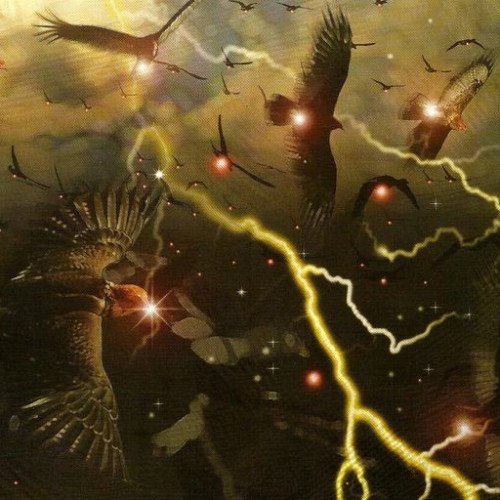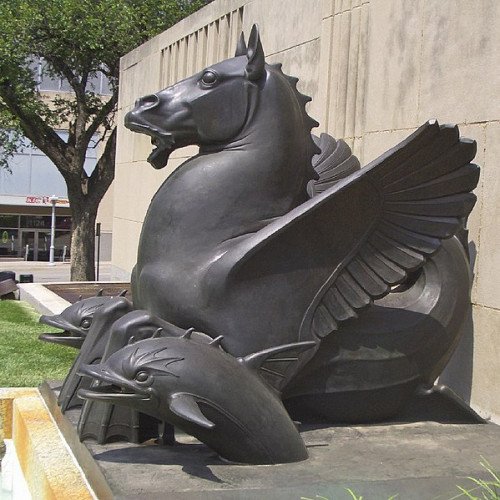Ababil (mythology) VS Hippocampus (mythology)

Ababil (mythology)
Ababil (Arabic: أبابيل, romanized: abābīl) means a flock of birds. It refers to the miraculous birds in Islamic belief mentioned in Sura 105 of the Quran that protected the Kaaba in Mecca from the Aksumite elephant army of Abraha, then self-styled governor of Himyar, by dropping small clay stones on them as they approached. In the translation of sahih international, the phrase "tayran abābīl(a)"(طَيْرًا أَبَابِيلَ) is translated as "Birds in flocks" that is mentioned in the verse 105:3. The event is said to have occurred in 570, the year that the Islamic prophet Muhammad was born.
Statistics for this Xoptio

Hippocampus (mythology)
The hippocampus or hippocamp, also hippokampos (plural: hippocampi or hippocamps; Greek: ἱππόκαμπος, from ἵππος, "horse" and κάμπος, "sea monster"), often called a sea-horse in English, is a mythological creature shared by Phoenician, Etruscan, Pictish, Roman and Greek mythology, though its name has a Greek origin. The hippocampus has typically been depicted as having the upper body of a horse with the lower body of a fish.